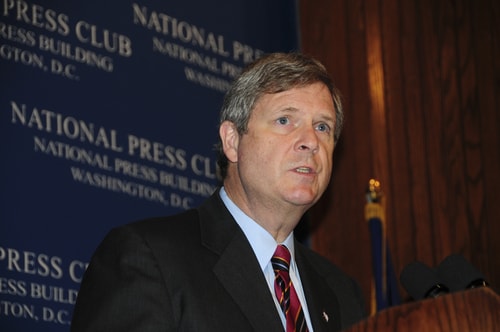Tom Vilsack says labeling program would help with consumer concerns
By Diego Flammini
Assistant Editor, North American Content
Farms.com
In the debate over whether or not there should be a national GMO labeling program in the United States, USDA Secretary Tom Vilsack offered support for such an initiative.
At the Commodity Classic in New Orleans on March 4, Vilsack said that Congress needs to act swiftly to establish a national GMO labeling program to prevent individual states from coming up with their own GMO labeling rules.
The labeling bill would need 60 votes to pass; Vilsack said he’s confident the bill would receive the required support and President Obama would sign off on the legislation.

“Congress needs to act, and they need to act in the very, very short term,” he said according to Hoosier Ag Today. “It’s going to be important to avoid the kind of chaos that could ensue if we have 50 different states developing their own labeling requirements, or individual companies deciding to establish their own individual company’s label requirements.”
If the national GMO labeling bill isn’t passed by July, Vermont would be the first state in the United States with its own labeling laws.
Vilsack said all parties involved with food production need to launch an educational campaign to help calm the concerns of consumers when it comes to GMO crops.
“I’m here today to say very unequivocally they are safe to consume,” he said. “There is no risk associated with them and we need to make that clear to the consuming public.”